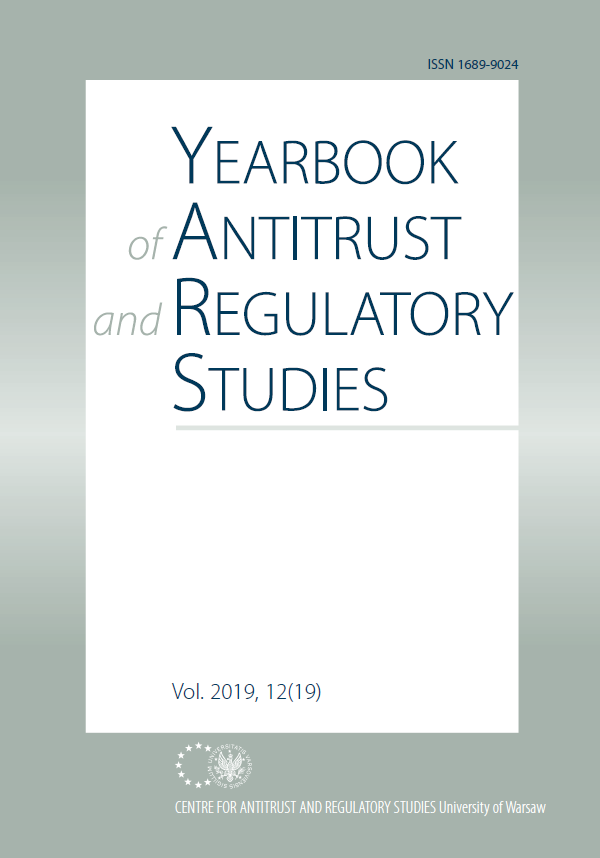Addressing Anticompetitive Data Aggregation:
a Comment to Bundeskartellamt Decision B6-22/16
Addressing Anticompetitive Data Aggregation:
a Comment to Bundeskartellamt Decision B6-22/16
Author(s): Laura SkopowskaSubject(s): Economy, Law on Economics
Published by: Wydawnictwo Naukowe Wydziału Zarządzania Uniwersytetu Warszawskiego
Keywords: data aggregation; data-driven markets; platforms; networks; data; information asset; abuse of dominant position; abusive business terms; exclusionary abuse;exploitative abuses;
Summary/Abstract: Data aggregation, understood as the process of gathering and combining data in order to prepare datasets that might be useful for specific business or other purposes, is not per se forbidden. However, some forms of it can be considered anticompetitive. In the Decision B6-22/16 of the German Federal Cartel Office (Bundeskartellamt) data aggregation, which included the collection of data from sources outside of Facebook’s social network (from Facebook-owned services such as WhatsApp and Instagram and from third party websites or mobile applications) and their combination with the information connected with a particular Facebook user account without that user’s consent, constituted an abuse of Facebook’s dominant position on the German market for social networks. The Bundeskartellamt found that the processing of user’s personal data by Facebook has, to some extent, been carried out in a way which infringed GDPR provisions. In the same decision, the Bundeskartellamt also identified the exclusionary nature of Facebook’s anticompetitive behaviour. According to the Bundeskartellamt, the illegal data aggregation formed a barrier to entry for Facebook’s competitors which, through compliance with data protection standards, found themselves in a worst position. Facebook, through its inappropriate data aggregation gained a competitive advantage. The Bundeskartellamt’s decision is, therefore, reflecting the anticompetitive dangers that data aggregation might pose. Nevertheless, it is debated whether the Bundeskartellamt, as a competition authority, is competent to determine the compliance or lack of compliance of business terms with the provisions of the GDPR. This paper analyzes the Bundeskartellamt’s decision as to where an anticompetitive nature of data processing has been identified, and tries to answer the question why it is problematic that it was the Bundeskartellamt and not a data protection supervisory authority that has issued such a decision.
Journal: Yearbook of Antitrust and Regulatory Studies (YARS)
- Issue Year: 12/2019
- Issue No: 19
- Page Range: 139-171
- Page Count: 33
- Language: English

